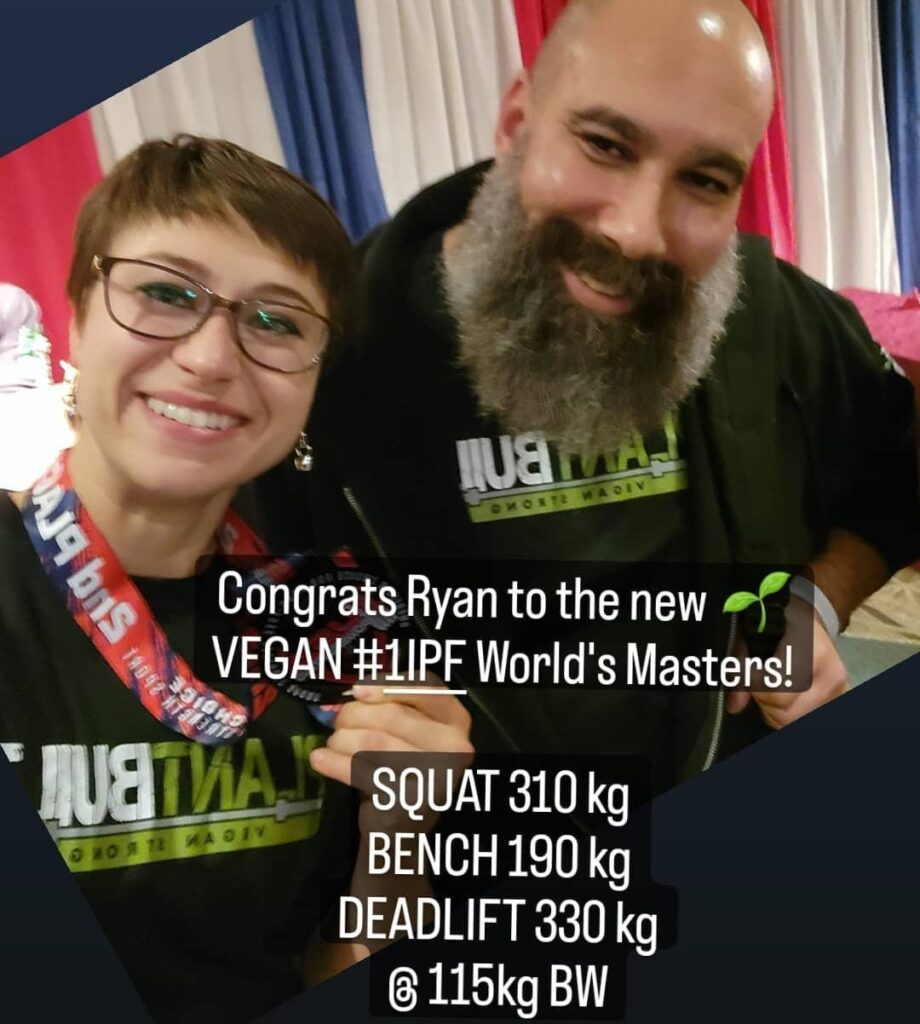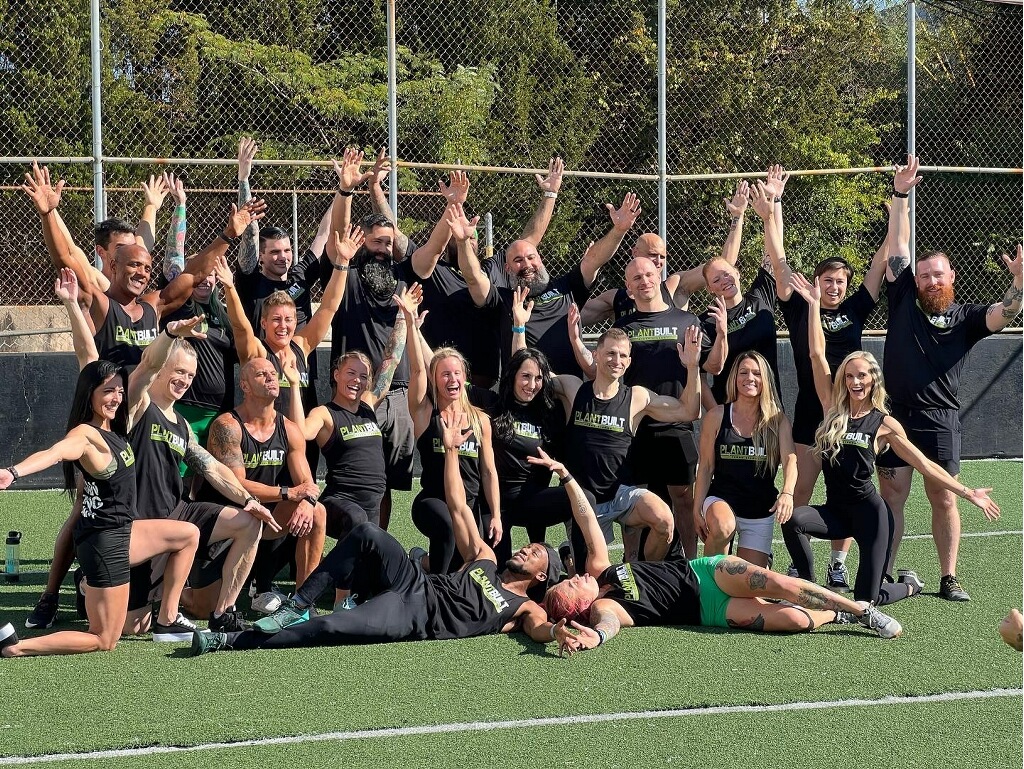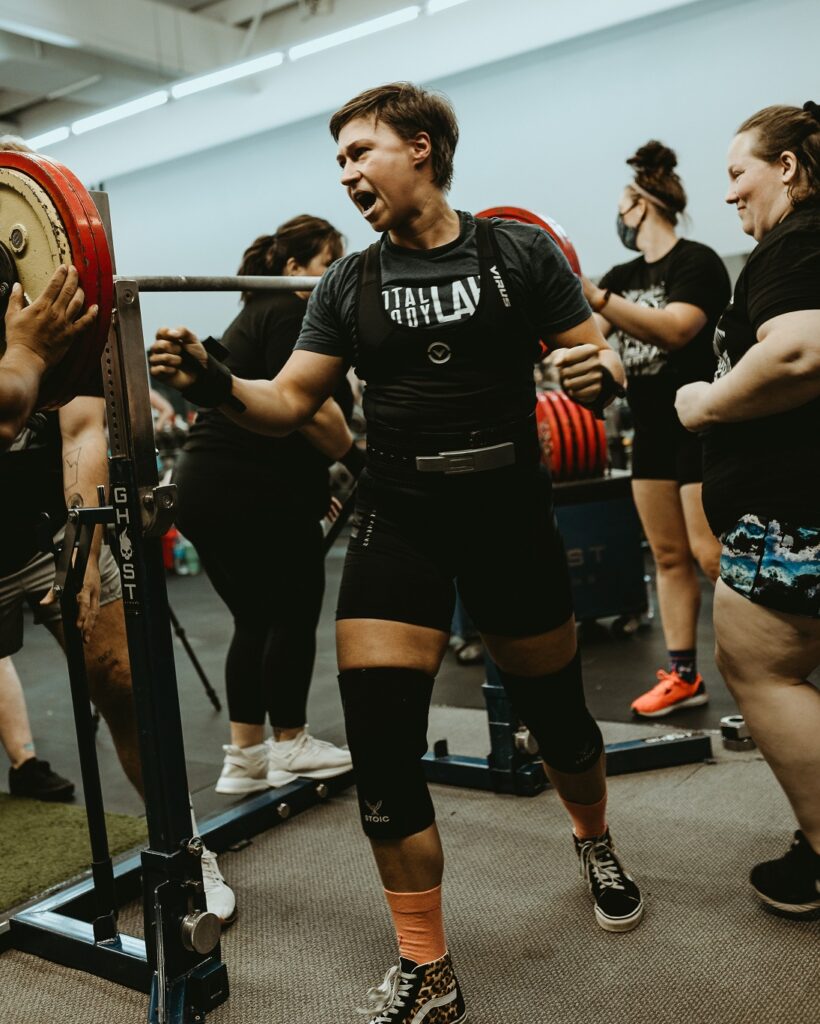Ryan Stills, the world champion in IPF 120kg weight class, my team mate and vegan powerlifter became my coach over the last few months after we both went to compete at Mr America with PlantBuilt VeganStrong team. I loved my previous coach and we still work together, but wanted to get more insights on my lifting programming from an athlete with a different approach and school of thought. So I did. Here is what I’ve learnt.

It's more important to be a good athlete than a good powerlifter
A lot of coaches, myself included focus on not doing anything but squat – bench – deadlift with some minor accessories. Coming out of bodybuilding I where athletes do A LOT of cardio and machine exercises, I’ve always kind of been between two schools of thoughts. I coach both and love both sports, and am an active person, so occasionally I’d run with my dog and hike and swim and then (no surprise) squats suck next day. I like to keep some delt work in my programs for vain aesthetic purposes.
What’s always surprised me is – that if I ever invited friends from a powerlifting community for a weekend hike + swim + frisbee – they’d be out of breath and dragging and just having a very hard time keeping up. KEEP IN MIND THAT I’M NOT A CROSSFITTER AND NOT A TOP TIER ENDURANCE ATHLETE. My point is that a lot of the powerlifters are low on the recovery and endurance spectrum. And that’s not good! Cardio is still the #1 thing important for the heart according to tons of research and common sense, and so is recovery. No wonder powerlifters get injured all the time. On top of being at injury risk due to high weights – we also CAN omit recovery and cardio to get stronger… so we do out of laziness.
When your powerlifting coach forbids you to do cardio claiming that walking more 5-10k steps a day, joy bike rides or weekend volley will ruin your gains – run. There’s more to life than being good at ONE THING. Plus, it’s unlikely that if you’re reading this about to crush the world’s or nationals – so relax, get better at a variety of activities and learn how to recover so that helping a friend move a couch doesn’t run your central nervous system out of gas.

Sleecting a weight class
I’m 73kg now, competing in a 75kg weight category. Have considered going down to the 67.5 kg category, but that’s a lot to cut given I don’t track macros after having had eating disorders… My thoughts of goring down to weight class are – not to become more competitive, but for health reasons. I’ve been gaining about 1kg / year over the last few years, and there’s no need to continue this trend.
Note that dropping body weight changes your lifting angles, so hitting depth for squats may be harder – since quads will become smaller. Having less body mass period usually impacts squats negatively anyways, and bench – as well. Deadlift is not so straightforward since when most people lose weight – wedging and getting closer to the bar becomes easier.
How to Select Lifting Volume
This is for the coaches and the advanced lifters. The majority of coaches at TotalBodyLab write custom program based on each client’s experience, work schedule, equipment available, amount of free time and a million of other variables. Interestingly – Ryan recommended selecting lifting volume not based on the “perfect program” logic and approach, but based on the factors above.
How fast does the person recover? Are they aggressive with their RPEs or usually sandbag? Are they developed enough to complete multiple SBD days a week and not burn out?
I usually program each movement and its progression differently, ordering them into cohesive days after the weeks are written out. Squat 2-5x week, bench 2-4 times, deadlift 1-3 times. 20 lifts / day, or 60-80 lifts a week total.
how often to compete
I compete often. Not because it’s necessary or beneficial to, but because it’s fun and I want to have fun, see friends and travel while doing activism . When my friends are competing, or there is a local meet, or I have no vegan festivals / speaking engagements traveling that month – I say “screw it, let’s do it!” I also think that being a vegan lifter is the best kind of activism. Especially since I usually get 1st or 2nd, so folks who don’t know – and then see the “eat pussy not animals” shirt from the tough vegan… they are like WOAH SHE IS VEGAN?? HOW IS SHE SO STRONG?
Anyways, ideally I’d compete once or twice a year since only then one will be confident to make a significant addition to their total. Ryan also had an interesting recommendation – pushing only one main lift per meet. I haven’t had the same approach, but it could be a good idea when it comes to breaking records, for example. Going conservative for bench and squat, and pushing deadlift for an American Record, for example – is not a bad idea. Stay in the meet, potentially win your weight class.
If you’re a newbie lifter – I recommend just getting the first meet out of the way any time soon and not worrying about the weight class, numbers, cutting water etc.
More useful info
Typically comes out in my newsletter, on IG or Youtube. Sign up in the pop up to this site. Coaching inquiries here.

